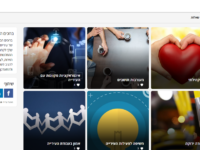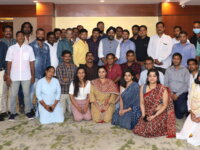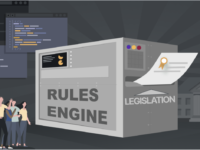The innovation is a new and comprehensive awareness program to apprise the public of the existing policy and legal framework in which they operate in Lebanon, through the mapping of existing laws and decrees, by topics and sectors. The aim is to understand the existing framework as a first step in working toward a just one. This empowers public officials and citizens with the right information to establish rule of law and accountability and to flag out gaps, inconsistencies and required reforms.
Innovation Tag: Reframing Rules & Regulations
Case Study
Turning Anticipatory Regulation from Principle to Practice: The Journey of the Regulatory Horizons…
Traditional ways of regulating are not able to keep pace with technological disruption, shifting sectoral boundaries, new types of problems and the opportunities innovation can bring. The Regulatory Horizons Council (RHC) is an independent expert committee set up the UK Government that identifies the implications of technological innovation, and provides government with impartial, expert advice on the regulatory reform required to support its rapid and safe introduction.
Case Study
Italian Gender Equality Certification System – Sistema per la certificazione della parità di…
Within the implementation of the National Recovery and Resilience Plan (NRRP). the Italian government has introduced a national “Gender Equality Certification System” that aims at guiding and incentivizing companies to adopt policies aiming at reducing the gender gap in all the most critical areas, such as opportunities for growth in the company, equal pay for equal work and maternity protection, and also supporting a paradigm shift developing from the business world.
MedeINN arose from the need to innovate in the government sector, in a city that had been developing its innovation capabilities in all other sectors. For this reason, and under Innovative State premise, we seek to connect the Mayor's Office of Medellín´s challenges with entrepreneurs and researchers capacities. This has been achieved after a redesign of a Public Procurement for Innovation methodology, which enables Open Innovation in the government sector.
Strategic planning has turned into bureaucracy circus, without really moving the needle. The City of Ashdod has pioneered a new strategic planning model, in collaboration with Insights.Us. The new methodology enables city leadership to define key measurable outcomes, harnessing cross-silos action plans. The digital platform was designed to celebrate success stories, and connect the community, allowing an inclusive whole-of-city approach.
The rate of innovation often exceeds the speed at which regulatory systems can adapt, blurring lines between sectors and cutting across transitional regulatory and geographical boundaries. The RPF aims to keep the UK at the forefront of regulatory thinking and experimentation. It sponsors projects, led by regulators, aiming to help create a UK regulatory environment that encourages business innovation and investment. It is market-led and uses real-world innovation settings to deliver.
In 2021, SIRA clawed back $91 million in excess insurer profit earned on the sale of compulsory motor accidents insurance and returned it to NSW drivers. This move was made possible after the 2017 reforms introduced a transitional excess profits and losses (TEPL) mechanism that was designed to eliminate insurer ‘super profits’ of the past. To our knowledge, the activation of this mechanism to claw back excess insurer profit and return it to the people was a world first.
Aapti's the Driver Advisory Council (DAC) represents a new framework for engagement between gig workers and platforms in the ride hail space - a first of its kind initiative in India. The larger aim of this innovation is to create a mechanism for platform governance that focuses on gig workers rights, enabling participatory action and reflexive praxis. To this end, we’ve engaged with public bodies such as India’s NITI Aayog to socialise the DAC and its novel approach to platform work.
Governments provide a variety of financial help to people in need, with the eligibility/entitlement rules largely defined in legislation. But understanding those rules is incredibly hard, especially when under duress. This project is a community and social sector collaboration on a public, anonymous and interactive service that helps people know their legal rights to services & to an explanation from government, built upon a world first community reference implementation of legislation as code.
The Australian Government - Dept of Finance sponsored a Proof of Concept (PoC) that looked at how Rules as Code (RaC) might be provided as a shared utility that can be used to deliver simpler, personalised digital user journeys for citizens. RaC is the process of taking legislation and regulations and turning them into machine-readable code. It provides many benefits to citizens and government, including greater reuse, less duplication, greater transparency and accessibility of rules.






